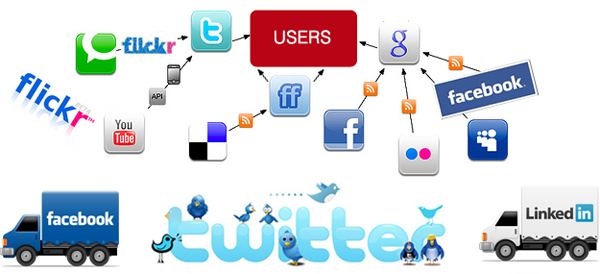(单词翻译:单击)
听力文本
This is Scientific American — 60-Second Science. I'm Larry Greenemeier.
When you install an app on your smartphone, you're often asked whether you'd like to share your list of contacts with that app. That might be a convenient way to connect with friends and family likewise using, say, Instagram or Whatsapp, but it also means you're giving away their personal information to the app developers.
And that personal info could end up being used to create so-called "shadow profiles" of your contacts—even if they don't use that app or social media service.
Shadow profiles emerged as a potential problem in 2011 when an Ireland-based advocacy group accused Facebook of gathering information on nonusers, including names, email addresses, phone numbers and physical addresses.
The following year researchers showed that social network companies such as Facebook could use machine learning to pretty accurately predict whether two nonmembers known by the same member also know one another. Not exactly Big Brother, but a recent study in the journal Science Advances raises the stakes.

In that work, David Garcia, chair of systems design at the sci-tech university ETH Zürich, used a social network member's personal information to infer relationship status and sexual orientation of the members' contacts who did not have their own user accounts on that social networking site.
He was able to do that using, of all things, data from the now defunct Friendster social networking site. He says he chose those two attributes—relationship status and sexual orientation—because they can carry important privacy consequences and were both available in the Friendster data set.
Garcia is careful to point out that he didn't prove that shadow profiles exist, just that they can be created. His work also reminds us how much we wind up revealing online—about ourselves and about the people in our lives.
Thanks for listening the Scientific American — 60-Second Science Science. I'm Larry Greenemeier.
参考译文
这里是科学美国人——60秒科学。我是拉里·格林迈耶。
当你在智能手机上安装应用时,经常会被询问是否允许该应用读取你的通讯录。这可能会便于联系同样使用Instagram或Whatsapp等社交软件的朋友和家人,但是这也意味着你将个人信息透露给了应用开发人员。
而这些个人信息最终可能会被用来创建联系人的所谓“影子档案”,即使他们并不使用该应用或社交媒体服务。
2011年,影子档案成为潜在问题,当时一个总部位于爱尔兰的倡导组织起诉脸谱网收集非用户的信息,这些信息包括姓名、电邮地址、手机号码和物理地址。
2012年,研究人员发现,像脸谱网这样的社交网络公司会利用机器学习进行相当准确的预测,即认识同一名会员的两个非会员之间是否也互相认识。这并不是监视,但近期发表在《科学进展》期刊上的研究引发了关注。
在这项研究中,苏黎世联邦理工学院系统设计系主任大卫·加西亚利用某个社交网络成员的个人信息,推断出了成员联系人的情感状态和性取向,而这些联系人并没有该社交网络的账号。
而他竟然是从已经失效的社交网站Friendster上获得数据并推断出的结果。他表示,他选择情感状态和性取向这两个属性,是因为它们具有重要的隐私意义,而且都能在Friendster网站的资料组中获取。
加西亚谨慎地指出,他并没有证明影子档案的存在,只是证明了它们能被创造出来。他的研究也提醒我们,对于自己及与自己有关的人,我们在网上暴露了多少信息。
谢谢大家收听科学美国人——60秒科学。我是拉里·格林迈耶。
译文为可可英语翻译,未经授权请勿转载!
重点讲解
重点讲解:
1. give away 泄露(秘密);
例句:She would give nothing away.
她会守口如瓶。
2. end up 最终;结果;到头来;
例句:Both firms insisted that if they did not get the money, bankruptcy would end up costing the taxpayer a great deal more.
两个公司都坚持如果他们没有获得贷款,最终破产将要花费纳税人更多的钱。
3. of all things 在所有的事物中偏偏;
例句:Of all things, how could you have forgotten your passport?
你怎麽偏偏忘了你的护照呢?
4. wind up 最终沦落到;最终落得;(以…)告终;
例句:He'll probably wind up being very well-heeled.
他也许最终会发财。


